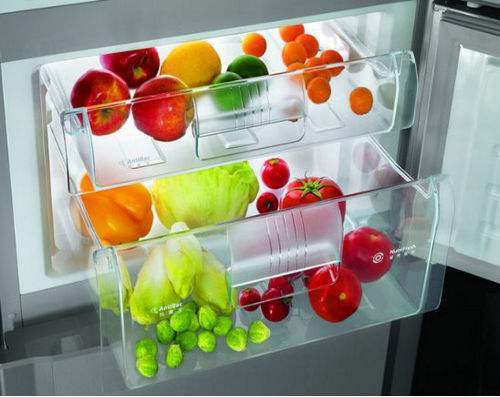Hot food may make the refrigerator’s motor run a little longer to bring the temperature back down, but that doesn’t overwork the motor.
冰箱的電機(jī)需要運(yùn)轉(zhuǎn)久一些才能讓滾燙的食物冷卻下來(lái),但這不會(huì)造成電機(jī)超負(fù)荷工作。
And chilling food as soon as possible can help prevent food poisoning. Here’s why.
此外,盡快冷卻食物有助于防止食物中毒。以下是原因。
Warm food is the perfect environment for bacteria to multiply.
溫?zé)岬氖澄锸羌?xì)菌繁殖的最佳環(huán)境。
Chill the food, though, and the party’s over, because cooler temperatures slow or stop bacterial growth.
食物被冷卻后,細(xì)菌的分裂活動(dòng)就會(huì)停止。因?yàn)榈蜏貢?huì)減緩或抑制細(xì)菌的滋生。

Our bodies normally handle small doses of bacteria in food, but what can give you food poisoning is large numbers of harmful bacteria.
人體通常可以戰(zhàn)勝食物中的少量細(xì)菌,但是大量的有害細(xì)菌會(huì)引起食物中毒。
The sooner you chill food, the sooner any harmful bacteria that may be in it will stop multiplying.
冷卻食物越早,食物所含的有害細(xì)菌就可以盡早停止繁殖。
With a refrigerator, you can chill hot foods right away.
冰箱可以讓您迅速冷卻滾燙的食物。
But the principle’s the same as in the icebox days-the longer food stays cold, the less chance it has to spoil.
不過(guò)在冰盒年代,這個(gè)道理同樣適用。食物冷藏的時(shí)間越久,變質(zhì)的可能性越小。
譯文為可可英語(yǔ)翻譯,未經(jīng)授權(quán)請(qǐng)勿轉(zhuǎn)載!












